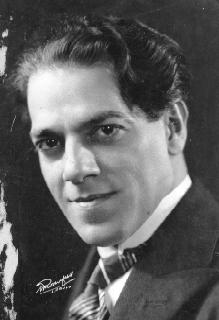Villa-Lobos, Choros No. 1
 Choro in Portuguese translates as “cry,” or more appropriately, “lament.” The popular musical genre under that name first appeared in Brazil in the late 19th century. Despite the name, Choros tend to be upbeat. They drew on African rhythms and a variety of European dance forms. The Choro was largely identified with the composer Ernesto Nazareth (1863-1934), who had a strong influence on Villa-Lobos.
Choro in Portuguese translates as “cry,” or more appropriately, “lament.” The popular musical genre under that name first appeared in Brazil in the late 19th century. Despite the name, Choros tend to be upbeat. They drew on African rhythms and a variety of European dance forms. The Choro was largely identified with the composer Ernesto Nazareth (1863-1934), who had a strong influence on Villa-Lobos.
Choros were associated with the serenading ensembles, which might include a variety of instruments, but always included a guitar or its smaller cousin, the cavaquinho. They mixed improvisation and virtuosity with sophisticated harmonies and counterpoint.
Heitor Villa-Lobos (1887-1959) became Brazil’s most important composer in the early 20th century. Although largely self-taught, he mastered the art of composition and was an accomplished cellist and guitarist. In his youth, he traveled throughout Brazil and absorbed its indigenous folk and popular music styles. Brazilian nationalism and popular styles would be important elements of his compositions throughout his life.
His writing is described in Grove’s Dictionary of Music and Musicians:
The great strength of his music is its spontaneity, and yet it is that which may be the cause of the weaknesses attributed by some critics to an improvisatory spirit. This very freshness, however, can persuade the most learned listener as well as the move naive, producing its effect through colour, rhythmic energy and the simple beauty of its melodies.
We have had several occasions to look at the artistic scene in Paris in the 1920s (with another coming soon). Villa-Lobos joined that scene, living in Paris from 1923 to 1929. His compositions were received enthusiastically, and it was here that his reputation was cemented. His Choros No. 1 had been composed prior to his departure in 1920. In Paris, he would complete thirteen more Chronos to make a set of 14. This series along with his cycle of Bachianas brasileiras comprise some of his most popular works.
Back in Brazil after 1930, Villa-Lobos was given the responsibility for organizing music education throughout the Brazilian public school system. In 1945, he founded the Brazilian Academy of Music in Rio de Janeiro and served as its president until his death.



